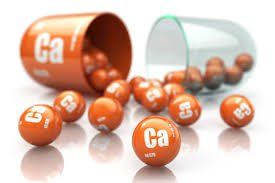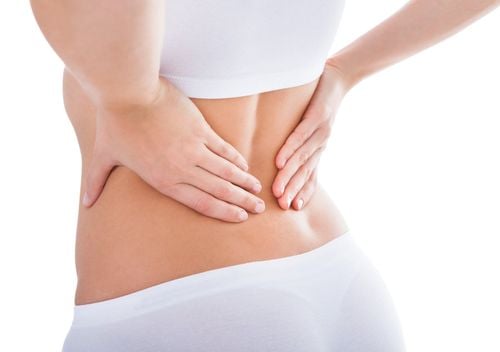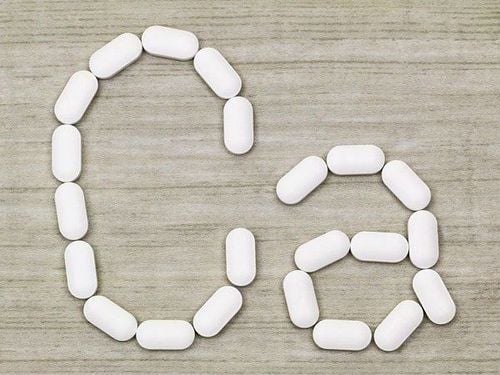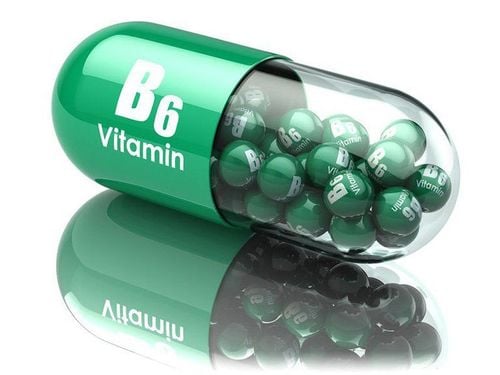This is an automatically translated article.
The symptoms associated with PMS can be uncomfortable, and if the cause is not known, the condition can be difficult to treat. For example, what causes irritability, lack of sleep or changes in hormone levels? Often, women with PMS will be prescribed medication to help treat individual symptoms without really looking at the cause. Medications can help, but not a long-term solution. This is why many women turn to natural supplements for long-term relief of PMS symptoms.1. What is premenstrual syndrome?
Premenstrual syndrome is a monthly set of symptoms that begin about a week before a period occurs. These symptoms tend to go away within four days of starting a period.For many people, PMS causes both physical and psychological symptoms, including:
Digestive disturbances Headaches Chest tightness Mood swings, irritability, anxiety Insomnia Levels The severity of these symptoms varies from woman to woman. Some people also experience a more severe form of premenstrual syndrome called premenstrual dysphoric disorder. At this point, the symptoms are extremely intense and interfere with daily activities.
Although experts are still uncertain about the exact cause of PMS or PMS, the condition is thought to be related to changes in estrogen and progesterone levels. Two hormones play an important role in the menstrual cycle.
2. Supplements that help improve mood before menstruation
Oral contraceptives and antidepressants are traditional treatments for PMS and PMS. In addition to these remedies, however, there are a number of supplements that can contribute to alleviating this condition, often with fewer side effects than traditional treatments.1. Chasteberry Chasteberry, also known as European chaste tree, is one of the commonly used functional foods for women's reproductive health with outstanding benefits in subjects suffering from pre-syndromic syndrome. period .
Accordingly, chasteberry has been shown to be particularly helpful for unpleasant physical symptoms, including bloating, breast tenderness, and headaches. Besides, this herb even works better than fluoxetine, an antidepressant, for mental symptoms.
How to take chasteberry should always follow the manufacturer's dosage instructions. To ensure safety, users should consult their doctor before taking chasteberry if they have a hormone-sensitive condition, such as ER-positive breast cancer. In addition, chasteberry may also interact with oral contraceptives and antipsychotics. You should tell your doctor if you are taking any of these medications.
2. Calcium People with PMS symptoms often don't get enough calcium from their diet. Furthermore, blood calcium levels can also change throughout the menstrual cycle.
A clinical trial found that taking calcium supplements helped reduce some symptoms of PMS, like bloating and fatigue. What's more, the conclusion also showed that calcium supplementation was effective for reducing psychological symptoms, including sadness, mood swings, and anxiety.
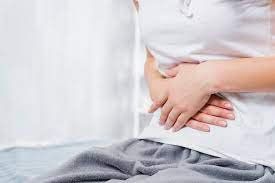
Canxi có thể cải thiện triệu chứng đầy hơi, mệt mỏi của hội chứng tiền kinh nguyệt
A safe way to take calcium supplements is to start by taking 500 milligrams (mg) per day. It should be noted that the recommended daily calcium intake in adults ranges from 1,000 to 1,300 mg, depending on age and sex. Although calcium supplements are safe for most people, they can cause constipation in higher doses. Also, be sure to let your doctor know if you take any other medications, including thyroid hormone or antibiotics, to take at different times of the day. However, calcium supplements are not recommended if you already have kidney stones or other health problems caused by excess calcium in the blood.
3. Vitamin B-6 Vitamin B6 is involved in the production of neurotransmitters, which play an important role in mood. This is a water-soluble vitamin found in many foods, including: chickpeas; tuna, salmon and other fish; potatoes and other starchy vegetables; beef liver and organ meats; Furthermore, many breakfast cereals are also fortified with this essential vitamin.
Several small studies have found that taking a daily vitamin B6 supplement can help treat many of the psychologically altered symptoms of PMS, including moodiness, irritability, and anxiety.
Accordingly, in the days before the cycle, it is necessary to supplement with water-soluble vitamins daily because the body does not store B-6. If you can't get enough from your diet, supplement with 50 to 100 mg per day. Always follow the manufacturer's dosage instructions. Do not take vitamin B-6 supplements if you are being treated with cycloserine, antiepileptic drugs, or theophylline.
4. Magnesium Some women with PMS may have low magnesium levels in their blood. Indeed, one study found that a magnesium supplement combined with vitamin B-6 helped participants reduce symptoms of PMS, including depression and anxiety. , insomnia, water retention and breast tightness.
Magnesium-rich foods include: almonds, green leafy vegetables, peanuts. Additionally, supplements that combine magnesium and vitamin B-6 in a single tablet are often an easy daily option by mouth, 200 to 250 mg per day. Note that the average daily recommendation for adults should be around 300-400 mg, depending on age and gender. Always follow the manufacturer's dosage instructions. For safety reasons, consult your doctor before taking magnesium supplements if you are also taking proton pump inhibitors, diuretics, antibiotics, or bisphosphonates, which should be taken at different times of the day.
5. Essential fatty acids Certain fatty acids, such as gamma-linoleic acid and alpha-linoleic acid, have anti-inflammatory effects that may help reduce PMS symptoms. Gamma-linoleic acid, found in evening primrose oil, has a long history of being used for premenstrual syndrome. A recent study found that a blend of essential fatty acids including gamma-linoleic acid, oleic acid, and linoleic acid reduced PMS symptoms in people taking 1 to 2 grams of the mixture. this every day. These improvements in symptoms were stronger after six months of taking the oil blend, compared with the results after three months.

Bổ sung các loại axit béo là cần thiết với người mắc hội chứng tiền kinh nguyệt
6. Ginkgo biloba Ginkgo biloba is best known as an herbal remedy for improving memory but can also help treat symptoms of PMS.
A clinical study evaluated the use of Ginkgo biloba as 40mg tablets three times daily to reduce the severity of unpleasant physical and psychological symptoms in subjects.
Accordingly, to supplement with Ginkgo biloba, it is necessary to follow the manufacturer's instructions on dosage. Start with the lowest recommended dose and take it for about 10 to 14 days from the middle of your cycle to a day or two after your period.
Because this herb can have serious interactions with medications you are taking, for safety reasons, talk to your doctor if it's unclear. Do not use ginkgo biloba in a patient who has had a seizure. Also, tell your doctor before taking ginkgo biloba supplements if you are taking blood thinners, such as aspirin or warfarin, or have diabetes.
7. St. John's wort Many people see St. John's wort is an herbal alternative to prescription antidepressants. This herb affects both serotonin and norepinephrine, two neurotransmitters that affect mood and are often targeted for use as traditional antidepressants.
Although St. John's wort is better known for treating depression, and it's also one of the most well-researched herbs, with some studies showing its effectiveness in treating symptoms of presbyopia. menstruation, which helps to improve both physical and mental symptoms.
Dosage recommendations vary considerably depending on the manufacturer, so follow the recommendations printed on the packaging and this herb should not be taken continuously for longer than 6 weeks.
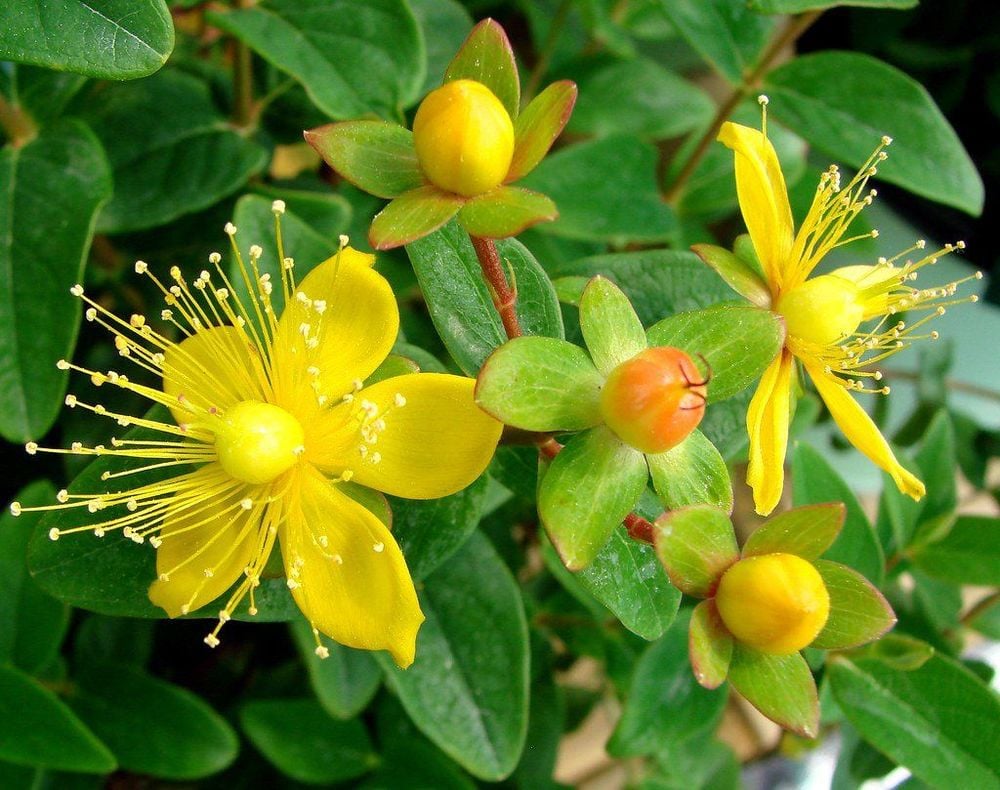
St. John’s wort có ảnh hưởng tích cực tới người mắc hội chứng tiền kinh nguyệt
In a nutshell, for many women, PMS is an uncomfortable monthly ordeal. However, there are a number of natural supplements that can help treat unpleasant physical and emotional symptoms, such as calcium, vitamin b6 and magnesium supplements. These supplements actually become more effective over time, 3 to 6 months; So don't be disappointed if you don't notice immediate results. Also, remember to always consult your doctor before taking if you are taking any medications or have a medical condition to avoid dangerous interactions.
Please dial HOTLINE for more information or register for an appointment HERE. Download MyVinmec app to make appointments faster and to manage your bookings easily.
Reference source: healthline.com



